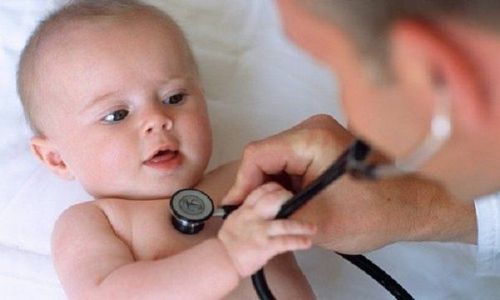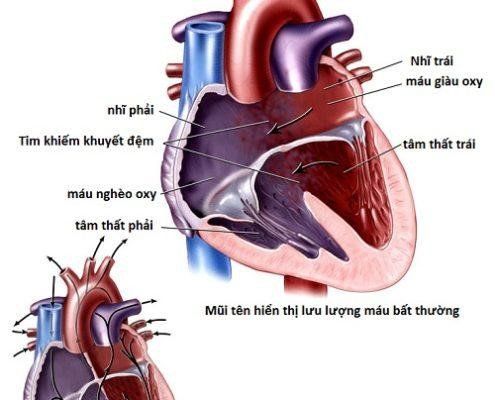This is an automatically translated article.
The article is professionally consulted by Master, Doctor Tran Hong Nhat - Interventional Cardiologist - Cardiovascular Center - Vinmec Central Park International General Hospital.The atrioventricular canal is one of the congenital heart defects and accounts for a high proportion of congenital heart diseases. Children from birth, if diagnosed with atrioventricular canal, need early surgery to ensure the functioning of the heart as well as the whole body.
1. What is atrioventricular canal congenital heart disease?
Structurally, the heart is divided into 4 chambers: 2 on the right and 2 on the left, separated by a septum. Between the right and left chambers of the heart are also separated by heart valves, which help control the flow of blood in and out. These valves open to allow blood to move to the next chamber or blood vessels, and close to keep blood from flowing backwards.Atrioventricular canal disease is associated with congenital atrioventricular septal defect with interventricular septal defect on the atrioventricular septum and is associated with valvular problems. Consequences, causing disturbances in hemodynamics and pumping capacity of the heart
Atrioventricular canal is divided into 2 types, based on anatomical damage: partial atrioventricular canal, complete (complete) atrioventricular channel
+ In A partial atrioventricular channel, a hole that exists in the septum separating the upper chambers (atria) of the heart. In addition, the heart valve (mitral valve) on the left side of the heart cannot close completely (mitral regurgitation).
+ In the total atrioventricular canal, there is a large hole in the center of the heart, related to the septal defect of both the upper chamber (atria) and the lower chamber (ventricle). And instead of two separate valves - right (tricuspid) and left (mitral), only one large valve exists separating the upper and lower chambers, and this valve also cannot close tightly.
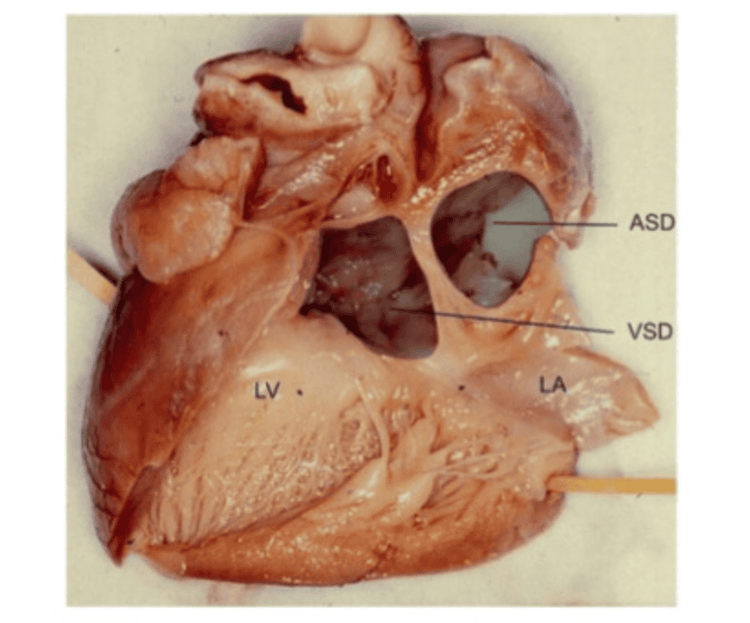
2. Clinical symptoms of atrioventricular canal
2.1 Complete atrioventricular canal
Symptoms of a complete AV channel usually develop during the first few weeks of a child's life and include:
● Shortness of breath, poor feeding
● Slow weight gain
● Skin and cyanosis
2.2 Partial AV channel
Signs and symptoms of a partial AV channel are less obvious, sometimes not appearing until adulthood. Symptoms, including:
● Irregular heartbeat (arrhythmia)
Manifestations of pulmonary hypertension, heart failure such as shortness of breath, edema of the lower extremities, fatigue,...
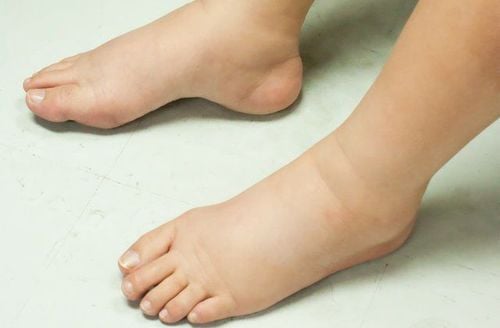
3. Risk factors of atrioventricular canal
Down syndrome
Mother had Rubella in the first 3 months of pregnancy
Family has a congenital heart defect
Drink a lot of alcohol during pregnancy
Mother has gestational diabetes
● Use some drugs. For example, isotretinoin (Accutane) treats acne during pregnancy. Check with your doctor before taking any medicine while you are pregnant and even if you are trying to become pregnant.
4. Complications of the atrioventricular canal
● Pneumonia: If the atrioventricular canal is left untreated, pneumonia - a recurrent serious lung infection is possible.
Cardiac arrhythmia: common is a conduction disorder from the atria to the ventricles
● Dilation of the chambers of the heart: Increased blood flow through the heart forces it to work harder than usual, causing dilation.
● Heart failure: Without treatment, the atrioventricular canal often leads to heart failure - a condition in which the heart cannot pump enough blood to meet the body's needs.
● Pulmonary hypertension: blood flow is disturbed by passing through the holes, increasing the amount of blood to the lungs, causing increased pressure in the lungs. Initially, this hypertension may be reversible if the deformity is corrected, otherwise it will be a permanent pulmonary hypertension.
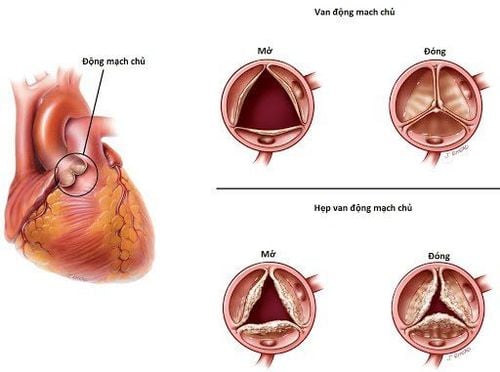
5. Treatment of atrioventricular canal congenital heart disease
Surgery is needed to repair defects of both types: complete atrioventricular canal and partial atrioventricular canal. The hole in the septum is closed using patches. The patches in the heart are permanent, becoming part of the septum of the heart. In addition, surgery helps to repair the heart valve, making it closed, and if it cannot be repaired, the valve must be replaced
Once the atrioventricular canal has been successfully repaired by surgery, the patient will lead a normal life, There are no operational restrictions. However, lifelong follow-up care with a specialist in congenital heart disease is required.
To protect heart health and detect cardiovascular diseases early... customers can sign up for Cardiovascular Screening Package - Basic Cardiovascular Examination of Vinmec International General Hospital. Through tests and modern imaging methods, doctors will accurately diagnose the patient's health situation and problems. The package is for all ages, genders and especially those with risk factors for cardiovascular disease.
Please dial HOTLINE for more information or register for an appointment HERE. Download MyVinmec app to make appointments faster and to manage your bookings easily.









